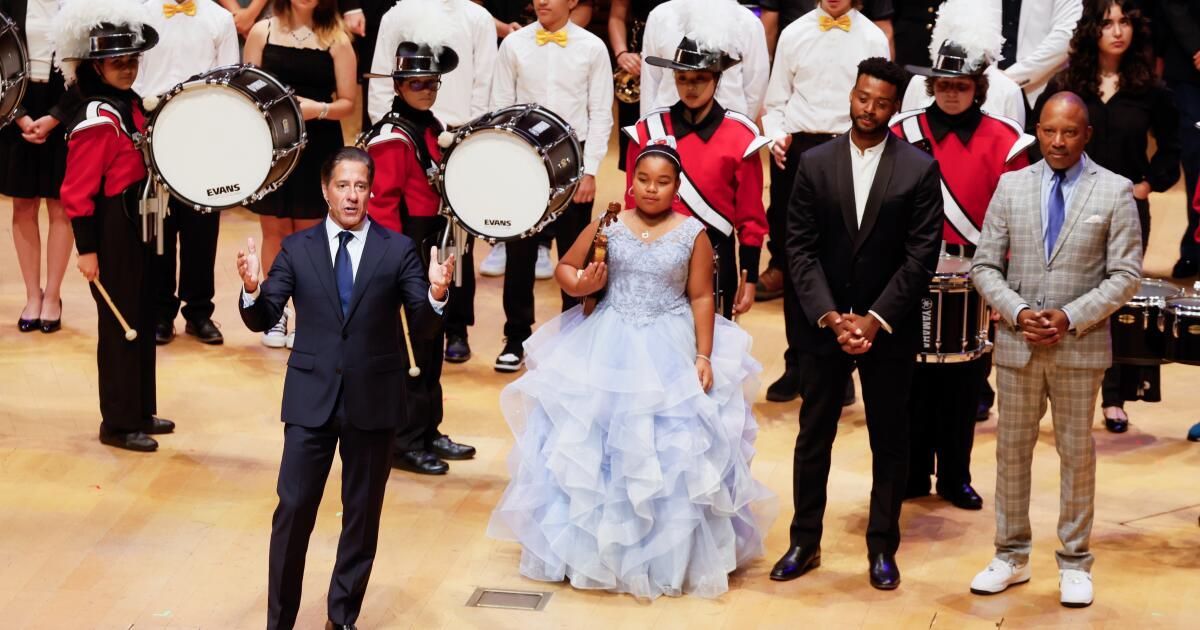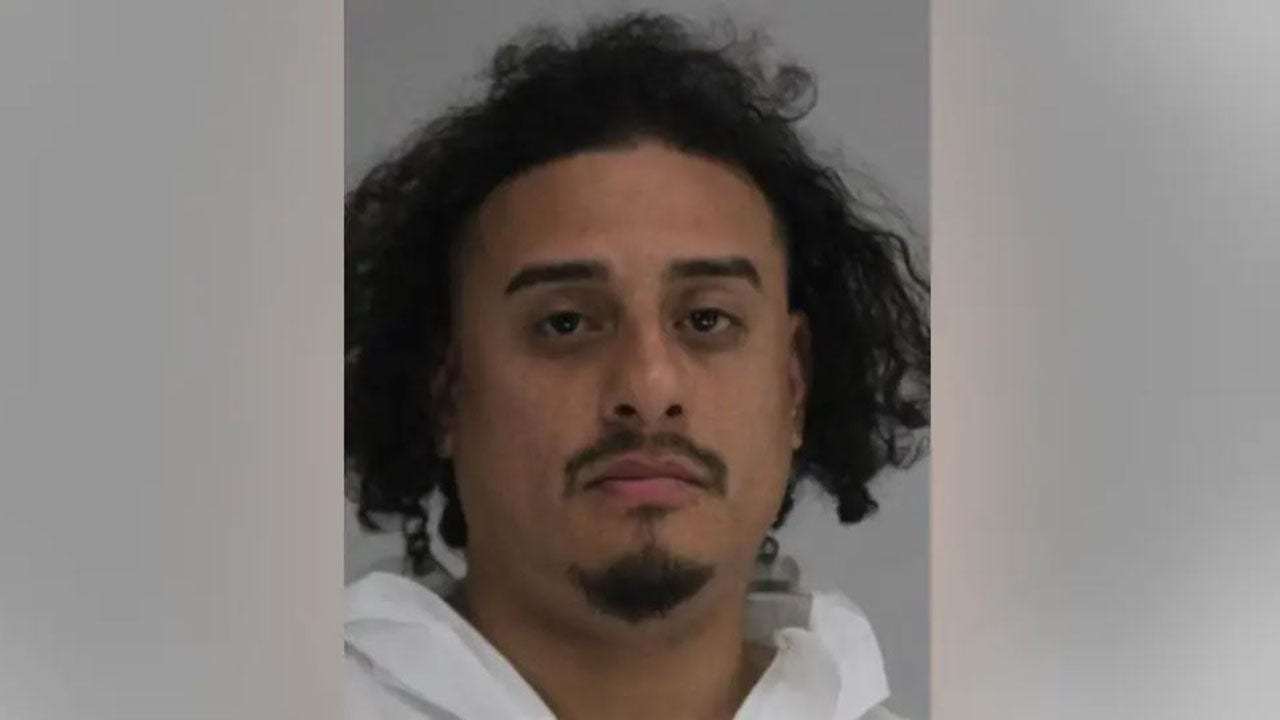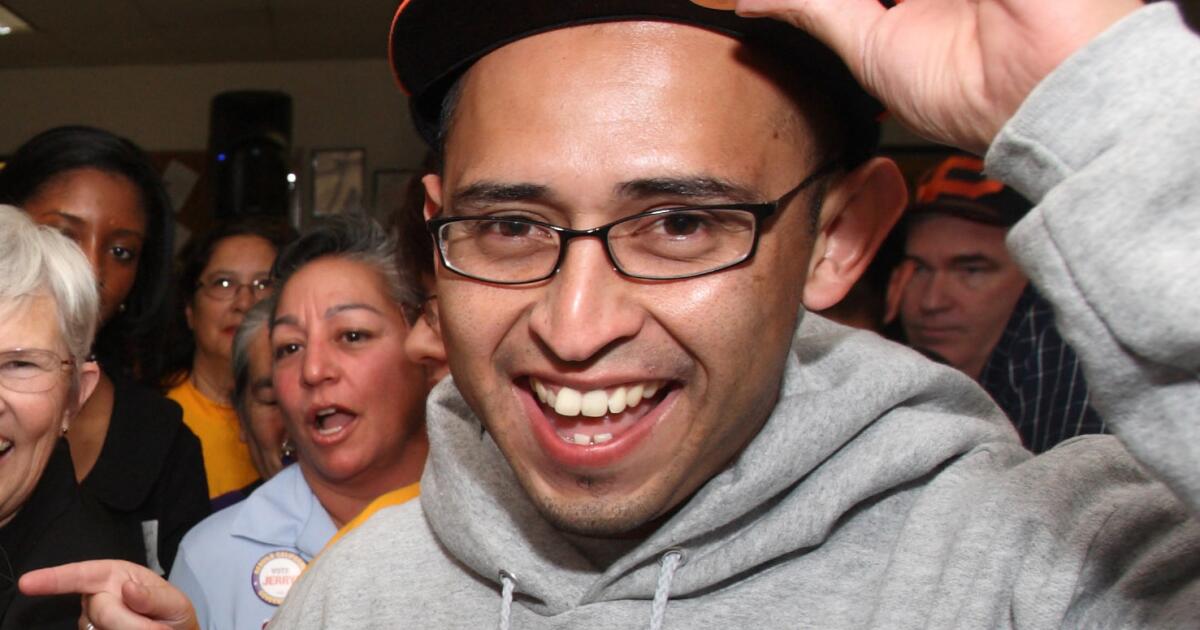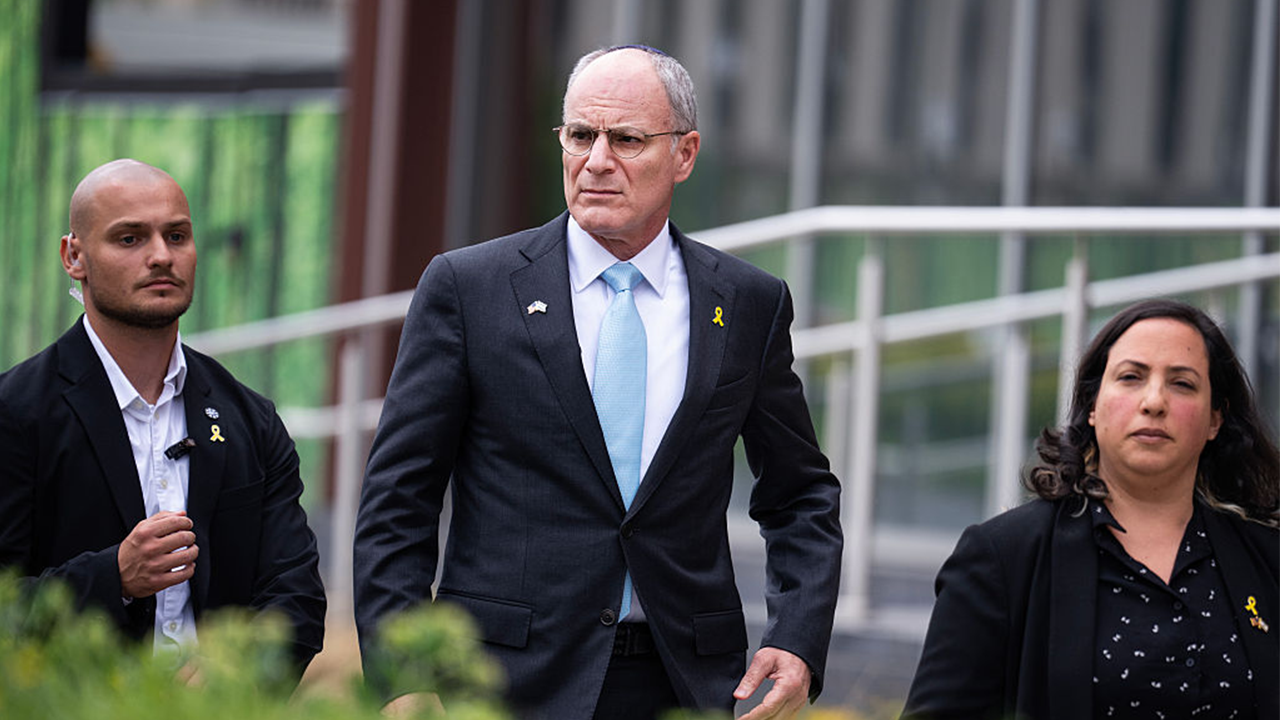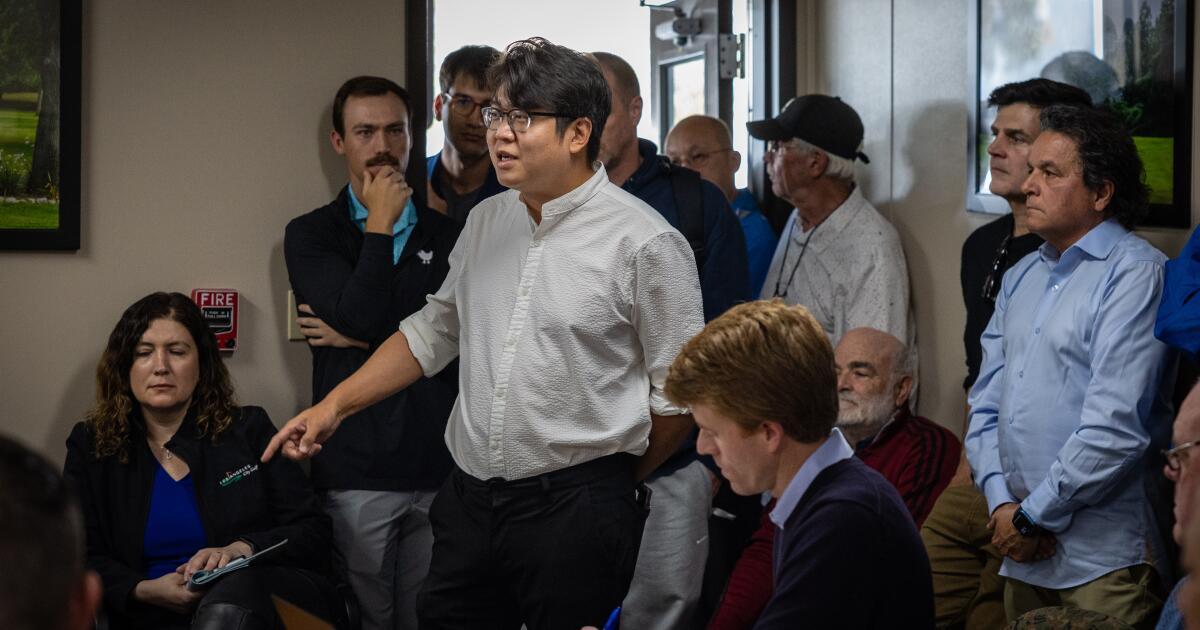In a breakthrough from pandemic-era learning setbacks, standardized test scores in the Los Angeles school system showed gains at every grade level tested in math and English, Superintendent Alberto Carvalho announced Tuesday, though most students remain below state grade-level standards.
At this time, LA results cannot be evaluated in a broader context because the California Department of Education has not released state test scores for the spring 2024 semester.
The scores, however, suggest that Los Angeles students have begun to recover from the deep lows of the pandemic, when campuses were closed for more than a year and students kept up as best they could through remote learning.
In English, districtwide English language proficiency increased from about 41% to 43% of students year over year, officials said. In math, scores rose to 32.8%, an increase of 2.3 percentage points. The English language proficiency rate measures what percentage of students have met the California learning standard expected for a given grade or subject.
Officials said only once previously have test scores improved across all grades since the current testing system began in 2015.
“Simply put, you are closing the achievement gap,” Carvalho told district employees in a speech that stood out, compared to other speeches, for expressing gratitude and praising others. “I have never worked with talent like the talent represented here today.”
“It’s pretty amazing that all demographics have improved,” Carvalho said in an interview.
The proficiency rates indicate the district still has a long way to go, even to reach pre-pandemic academic performance levels. But Carvalho said in some grades, in math or English, students were at or near pre-pandemic levels on test scores.
Instead of focusing on proficiency, Carvalho and other district officials have drawn attention to a meaningful but unclear measure called “distance from standard.” This measure takes into account all outcomes for all students, and on average, students in the district are getting closer to the “standard” — that is, what students at a particular grade level are supposed to know.
California tests students in math and English in grades 3–8 and in grade 11.
Students are also tested in science in grades 5 and 8 and once in high school. District officials said they were not ready to release the results of the science test.
The first day of the new school year is August 12.
This year, the high-profile annual back-to-school address was held earlier than usual to coincide with the start of meetings and training for principals and other administrators, who attended the event along with other officials and guests.
A new initiative is a principals' academy, which will launch a two-year training program for aspiring administrators. Learning material will include how to understand data and use it to create positive change. The training process will also provide principals with mentors before and after they begin managing a school.
The meeting, held at downtown's Disney Concert Hall, has become an annual promotional and showcase opportunity for the superintendent. Carvalho embraces the stage show element like perhaps no other superintendent before him, speaking without notes, moving easily around the stage and peppering in jokes with the help of well-timed slides.
He was preceded by musicians, dancers and singers, many of them in colourful costumes.
Oscar-winning co-director Kris Bowers of “The Last Repair Shop” applauds violin student Porche Brinker and others who performed as part of an annual back-to-school address given by Los Angeles schools Superintendent Alberto Carvahlo.
(Allen J. Schaben/Los Angeles Times)
Carvalho took the opportunity to highlight several district initiatives and highlights, including an Oscar-winning documentary short film about the school system’s musical instrument repair shop. The film is fueling a $15 million capital campaign to support the work.
Another notable effort was a mobile laundry truck for families, which does laundry while students are at school and parents are at work. The size of the initiative makes it more symbolic than sweeping, but it is intended to send a message about the extent to which the school system is trying to help families.
An upcoming project is a mobile e-sports lab, where learning tasks are “gamified” or transformed into activities that are games.
The superintendent waded into controversial territory by touting what he described as increased spending on the arts. Critics have accused the district of illegally diverting money intended for arts education to other purposes.
The star of last year’s keynote, “Ed” the chatbot, was not invited to this year’s event. A year ago, Carvalho had touted Ed as an AI-enhanced student advisor that would be one component of a unique individual acceleration plan for each student.
While that remains the plan, the full implementation of the program is on hold. And it's hard to find students, teachers or other staff members who have used any part of the system since its official launch. It's not available in most schools.
The much-hyped chatbot has been taken offline entirely in the wake of the apparent financial collapse of Boston-based AllHere Education, the company that provided the technology.
In an interview ahead of the Disney event, Carvalho said he would assemble a task force of independent experts to conduct a wide-ranging review, with the goal of revamping the AI effort. A key sticking point will be whether the district could strengthen its bidding and oversight process to avoid a similar situation in the future.
Carvalho said he anticipates the task force, once convened, will complete its work in about three months.

